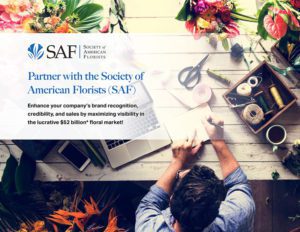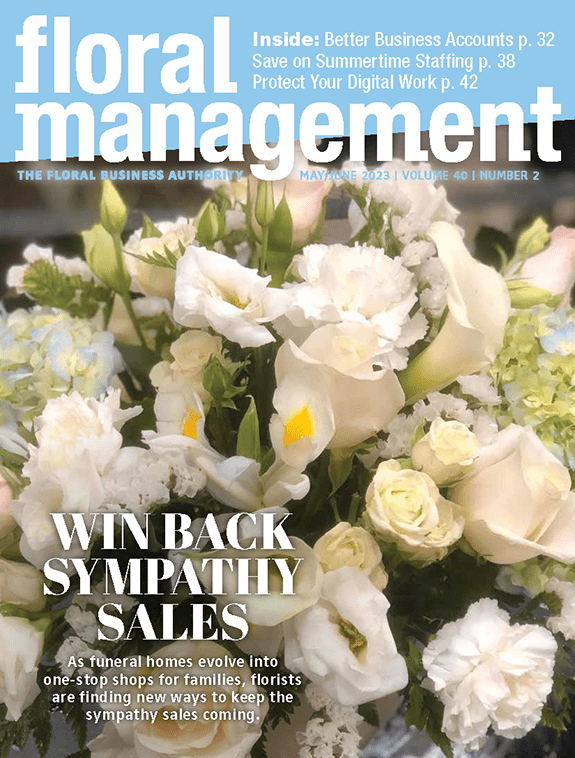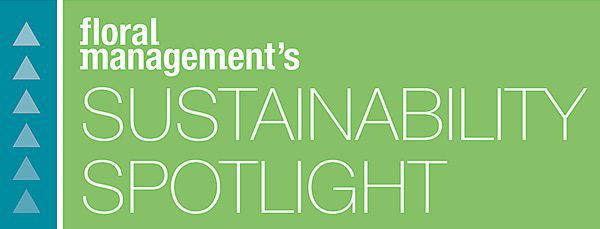Tips on How to Get an Exemption or Waiver
SAF has collected the following best practices from floral businesses that have successfully secured a waiver or exemption for their business.
Review your state/municipality rule directly. Do not rely on news reports alone. Instead, go directly to the issuing body and read the executive order. Remember there is great variation among states and definitions. Identify the state website/mechanism used to request a waiver for the services you want to provide (e.g. curbside pick-up or contact-free delivery).
Make your case. Key factors businesses have cited in applying for waivers and exemptions include:
- Emphasize safety. Take the time to explain how your business works in compliance with COVID-19 restrictions: e-commerce capabilities, contact-free delivery, curbside pick-up, social distancing measures among reduced staff, enhanced cleaning, telework opportunities for those who can work from home. For example: Florists, like other businesses allowed to operate, can have little to no physical interaction with the public by taking phone and internet orders and make “non-touch” deliveries and non-contact curbside pickup.
- Point to the emotional impact of flowers. In this time of social distancing, flowers and plants offer a way for people to connect safely. They are scientifically proven to reduce stress, enhance feelings of connection and provide a moment of calm. Leverage SAF research to help make your case.For example: Research from Harvard University reveals that people feel happier and more energetic after looking at flowers first thing in the morning. That same study also showed that the presence of flowers helps reduce worry and anxiety.In senior citizens in particular, flowers decrease depression, refresh recent memory and encourage companionship, according to research from Rutgers University. Research from the University of North Florida shows that people who lived with flowers in their homes for just a few days reported a significant decrease in levels of stress and improvements in their moods.
- Make the case for fairness. Most floral enterprises are small businesses and state restrictions can unfairly target them and prevent their operation even as larger businesses (hardware stores, national internet providers, delivery companies, grocery stores) continue to operate. For instance: We have much in common with restaurants, online businesses and delivery services, which are allowed to make, sell and delivery and provide curbside pickups of their products – Pizza Hut, UPS, FedEx and Amazon are examples.
Find partners. In Plymouth, Minnesota, Len Busch Roses galvanized 200 industry members to help advocate for a change to the state’s executive order that would allow retail florists to continue offering some services, including curbside pick-up. Enlist other industry colleagues in your effort.
Identify Advocates. Both Len Busch Roses and Dillon Floral, in Bloomsburg, Pennsylvania, found powerful advocates in state representatives that understood their concerns and acted as a voice for the industry with governors’ offices. Leverage partnerships you already have with lawmakers—and ask colleagues and friends for help.
SAF Advocates for Continuation of Safe Floral Delivery
SAF made the case in a letter to governors nationwide that the importance of flowers to public health during stressful times—combined with industry’s expertise in safe delivery of product to consumers—should qualify floral businesses to be able to continue to deliver product.
SAF CEO Kate Penn clarifies that SAF is not advocating that flower shops stay open for walk-in retail sales but rather for website-based business for delivery. “Our industry can and should do its part to help slow down the spread of the virus,” she said. “Our ask is really about e-commerce sales for delivery, much like how restaurants are filling orders.”
Ultimately, the decision on which businesses can stay open during the COVID-19 crisis is made at the local level, so it’s important legislators hear from their constituents. SAF encourages business owners who can continue to fulfill e-commerce orders following CDC social distancing guidelines to personalize the letter below by putting it on company stationery and sending it to local and state officials.
Letter Text:
Dear State and Local Officials,
Agriculture is one of the 16 critical infrastructure sectors identified by the Department of Homeland Security’s Cybersecurity & Infrastructure Security Agency (CISA) as vital to the economic security, public health and safety of the United States. We are writing to highlight an essential aspect of agricultural production and distribution—floriculture—and its impact on public health.
While access to food and medicine is of utmost importance during this COVID-19 crisis, the mental health needs of our population must also be taken into account. Consider this: According to studies cited by the American Psychological Association, social isolation and loneliness heightens health risks as much as smoking 15 cigarettes a day or having an alcohol use disorder, and it also increases the risk of premature death. It’s also well documented that depression is a likely byproduct of prolonged periods of isolation and something senior citizens in particular are more prone to.
The floriculture industry can play a critical role in improving the population’s mental health as we navigate COVID-19:
- Research from Rutgers, The State University of New Jersey, shows that the presence of flowers around senior citizens decreased depression among 81%, refreshed recent memory among 72% and encouraged outreach to loved ones among 40 percent.
- Research from the University of North Florida shows that people who lived with flowers in their homes for just a few days reported a significant decrease in levels of stress and improvements in their moods.
- Research from Harvard University found that people who live with flowers report fewer episodes of anxiety and depressed feelings.
Indeed, on March 19, the Governor of Pennsylvania, addressing his constituents about the need to socially isolate, urged Pennsylvania residents to avoid social interactions and instead to “call loved ones and send flowers.”
The floriculture industry can give families and friends separated by distance a joyful and safe way to connect and reduce feelings of anxiety and stress—all through the convenience and safety of electronic ordering and touch-free delivery. Our industry has been offering delivery for well over 100 years, so just like restaurants, couriers and other delivery services, florists are well equipped to get our product to consumers while adhering to the Centers for Disease Control guidelines.
On behalf of this important sector of agriculture, we ask you to allow floral industry businesses to play a vital role in improving public health at a time when our population needs it most.Sincerely,
Kate F. Penn
CEO
Society of American Florists
Click here for SAF Letter to Governors


